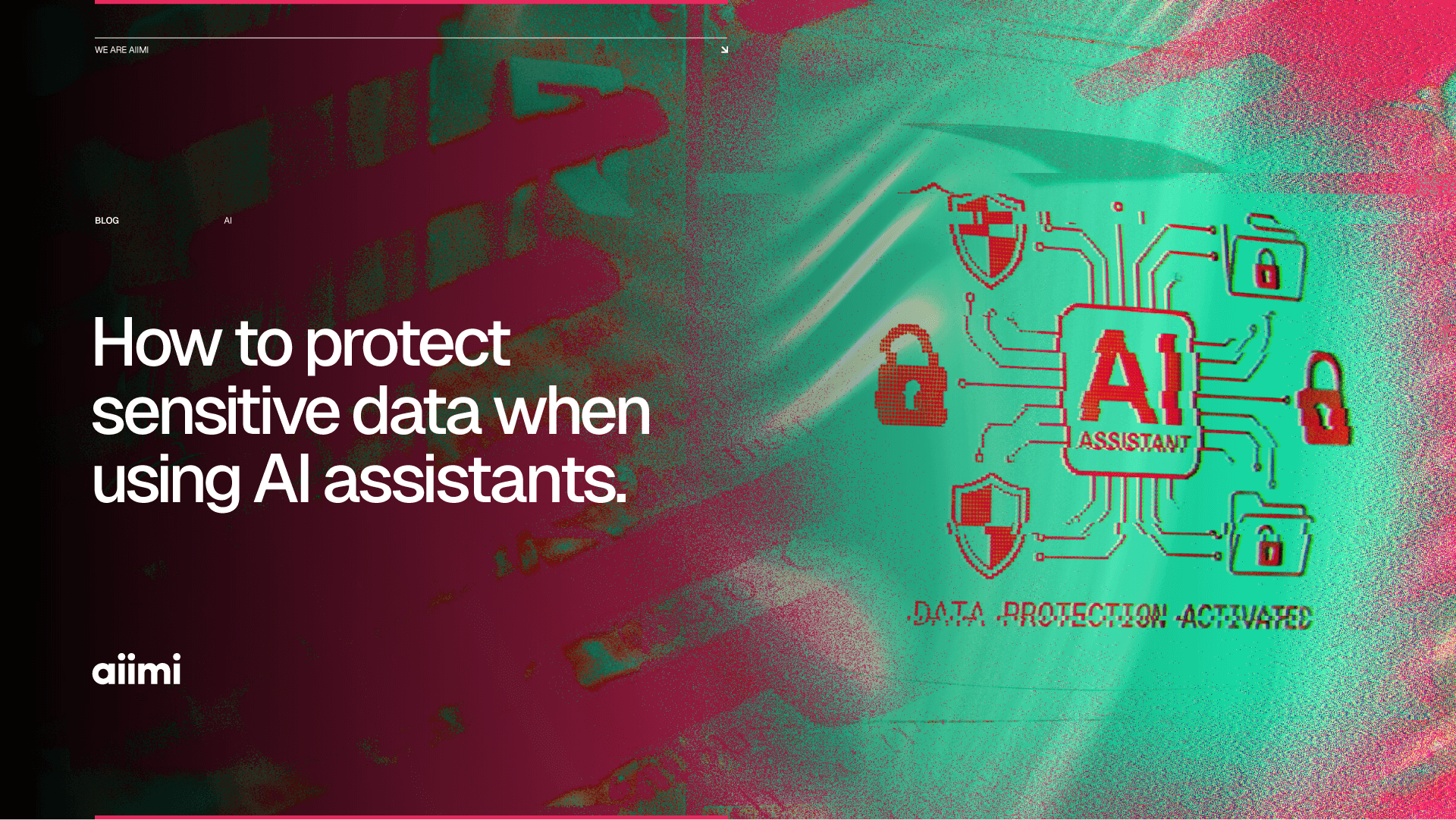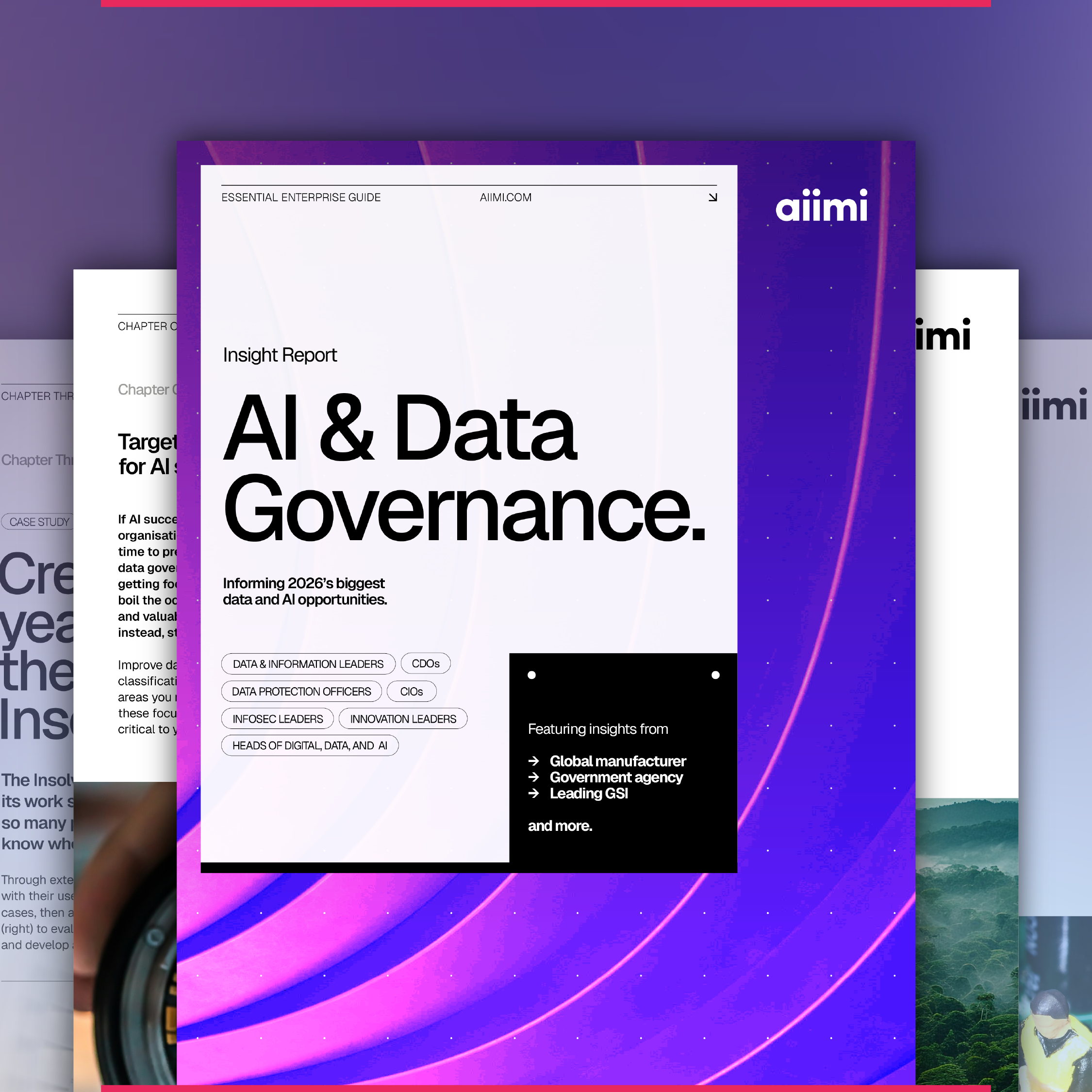Who are knowledge workers and how does AI technology speed up their work?

Knowledge is a powerful economic resource, making skilled knowledge workers a real asset. But who are they, why do they matter, and how easily can they find the insight they need to fuel productivity? Find out how visionary enterprises are investing in AI to accelerate knowledge work.
Who are knowledge workers and what do they do?
Rewind back to the 1950s post-war economic boom when global economies shifted up a gear, catapulting the services sector into its new position as a leading employer. This rapid expansion in services not only marked an era of momentous change on a global scale, but also called for the specific skills of a whole new type of employee – known as the knowledge worker.
Coining the phrase ‘knowledge work’ in his renowned book The Landmarks of Tomorrow (1959), influential management consultant Peter Drucker defined the crucial roles these knowledge workers would play in navigating enterprises to succeed. Drucker also had the foresight to predict that knowledge work would continue to grow, driving productivity right up to the present day – and beyond.
The most valuable asset of a 21st-century institution, whether business or non-business, will be its knowledge workers and their productivity.
Quadrupling since 2012 to number more than one billion, knowledge workers typically combine multidisciplinary cognitive skills (analytic, reasoning, creative, communicative, and so on) with insightful knowledge to make critical decisions, develop new products and services, and find rapid solutions in response to fluctuating business challenges. Knowledge workers then share all that expertise across your enterprise to deliver even more value.
More than one billion knowledge workers worldwide steer a wide range of enterprises to succeed.
Adaptive to changeable working environments and unpredictive economic conditions, knowledge workers are not only agile and productive – regardless of their sector, physical work location, or approach to core tasks – but also perform skilled tasks independently and collaboratively at the flick of a switch. Central to today’s knowledge worker is the adoption of AI technology to find fast solutions to new challenges. If all this sounds familiar, you’re likely a skilled knowledge worker too!
What’s driving the growth in knowledge workers and why does it matter?
Forward wind to 2022. Knowledge worker numbers are spiralling to keep pace with rapidly changing challenges intensified by today’s digitalised and data-driven business processes. And an exponential amount of data is being generated every day at breakneck speed. Best estimates put it at 2.5 quintillion bytes, plus. Collating and storing all this data are the first two challenges that most effective businesses have mastered. But harnessing its true value is quite another success story. And that’s exactly why good knowledge workers are in such high demand, and why retaining them is more important than ever before.
All this matters because expert knowledge workers are canny at unlocking value from vast amounts of varied data to resolve problems, brainstorm new ideas, analyse trends, and discover emerging opportunities to give your business a competitive advantage in our crowded marketplace. This all sounds promising, but how does it pan out in practice?
What obstacles do knowledge workers face when searching for good data?
Colossal stores of collated structured and unstructured information are often siloed across a maze of diverse enterprise sources and systems, frustratingly beyond the reach of your knowledge workers. And more than 90% of this information is unstructured data. Often hidden from view, it’s extremely hard to find. So hard that less than 1% of unstructured data is ever analysed or used.
90% of information we create is unstructured data – and less than 1% is analysed or used.
Economics Professor Kit Sims Taylor found that knowledge workers spend nearly two-thirds of their time searching for information and communicating it to others. In fact, roughly one third of knowledge workers’ time is wasted reworking and recreating knowledge that already exists but can’t be found. Only 10% of their time is productively spent creating new knowledge and content. These timescales are rather unevenly balanced. And if your knowledge workers can’t find or retrieve data, they can’t glean data insight from it to create new information assets for your business.
Knowledge workers waste one third of their time reworking and recreating knowledge that already exists.
In 2022, Forbes similarly reported that its “Fortune 1,000 clients have done studies of hundreds of their employees and have found that the average knowledge worker spends 10 hours per week searching through tools and systems for answers. This equates to 25% of a typical work week. Worse yet, they’re likely not to have found what they were looking for after the time has been spent.”
Knowledge workers spend around 10 hours every week searching through tools and systems for answers.
Information permissions are also becoming more stringent, further hampering access to valuable data so knowledge workers can’t easily tap into it or share it with others. Added to this, a recent Gartner survey found that 44% of users made a wrong decision because they were unaware of information that could have helped them make the right decision. And 43% of users reported not noticing vital information because it got lost amid the vast volumes of information they received or because they were overloaded by so many different applications (which Gartner terms YATTC: ‘yet another thing to check’).
44% of users frequently or occasionally made a wrong decision because they were unaware of information that could’ve helped them.
You don’t have to be a knowledge worker at a Fortune 1,000 company to feel this pain. Signing into a smörgåsbord of enterprise search applications to find that nugget of good data you need to help solve a complex problem or develop a new solution is akin to finding a needle in a rather large haystack. If you do happen upon it, and can access it, you may well waste even more valuable time interpreting, manipulating, and combining raw data into insightful knowledge that you can put to beneficial use.
Why do knowledge workers encounter these stumbling blocks to effective search, access, and data insight? When it comes to sifting through vast volumes of data for this insight, the existing enterprise search engines that knowledge workers rely on are inadequate and unscalable. These outdated models are way too reliant on manual input. Simply put, enterprise search is broken.
Today’s knowledge workers need AI technology solutions to fix these problems – and to deliver a whole lot more than simplified searchability. Savvy knowledge workers are on the lookout for interconnected, relevant, enriched, and contextualised information that can be served directly to them for immediate impact.
When information is transformed in this way, it becomes valuable data-driven insight. And knowledge workers are adept at putting data insight to work. That’s why you hired them! But for this to happen, your outdated enterprise search engines need to be replaced by intelligent search – also known as cognitive search or insight engines – powered by AI technology.
AI technology makes finding data and unlocking insights effortless for knowledge workers
Knowledge workers need a whole new level of AI-powered data insight to step ahead in our competitive globalised economies. And the faster they get it, the sooner they can achieve business goals. Insight engines are here to help them do just that. Interconnecting and enriching all structured and (crucially) unstructured data to break down silos and unlock new insightful discoveries in context, insight engines powered by AI technology are a vehicle to accessing, using, and sharing knowledge across your enterprise.
Insight engines apply relevancy methods to describe, discover, organize and analyze data. This allows the existing or synthesized information to be delivered proactively or interactively, and, in the context of digital workers, customers or constituents, at timely business moments. (Gartner)
When knowledge workers can clearly see where everything lives, work isn’t repeated – and all your knowledge workers can keep track of the information lifecycle. By saving precious time searching for data that may or may not exist, or replicating content that already does exist, your knowledge workers can quickly cut through wasteful information overloads. So much so that Gartner predicts that by 2026, employees will reduce the time they spend looking for information by 50%, as information will be delivered to them within the context of their current tasks.
By 2026, knowledge workers will halve their time spent looking for information because contextual data will be delivered to them.
By delivering valuable and insightful data directly into the hands of your knowledge workers, insight engines ensure all knowledge workers have the exact same version of real-time data they need in an instant, plus a whole host of untapped valuable data insight. Freeing up precious hours, your knowledge workers now have more time to do what they do best – using this data insight for strategic thinking and analytical decision-making.
What obstacles do knowledge workers face when collaborating and sharing good data?
Asynchronous working (alone and apart) and remote working for knowledge workers still marks unchartered territory. But with knowledge workers being spread out over more physical locations than ever, added to fewer knowledge workers to go around owing to record-level workforce turnovers, it’s important that enterprises get the absolute best from their talent pool of knowledge workers.
Gartner forecasts that in 2022, 31% of all workers worldwide will be remote (a mix of hybrid and fully remote), with remote workers representing 52% of the UK workforce.
31% of all workers worldwide will be remote – and the UK will see 52% of its workforce working remotely.
If automated knowledge sharing processes steered by AI technology aren’t put in place to instantly capture and share insights, internal knowledge stacked up over the years can get easily lost in siloed systems, and benefit potential competitors when knowledge workers move on to new pastures.
According to Harvard Business Review “HR directors believe that ensuring that an organization has the latest collaborative technology in place to enable agile learning is the most important factor in recruiting and retaining the best talent, and 88% of employees confirm this notion, saying that they look for this when searching for a new position.”
Collaborative technology for agile learning is the most important factor in recruiting and keeping talent.
Not only do businesses need to put in place an automated knowledge sharing platform to retain data and prevent its loss, but this technology also needs to be user-centric, intuitive, and collaborative to ensure that your knowledge workers can benefit from self-served data insights for agile on-the-job learning. How can we better connect knowledge workers to actionable insight – and put in place knowledge sharing?
AI technology makes collaborative data sharing swifter for knowledge workers
Working on different tasks at different time points needn’t be a challenge if knowledge workers adopt one automated accessible platform that enables everyone to work better together. Lengthy processing times and multiple handovers between different knowledge workers is avoided when you invest in AI technology solutions like insight engines. When your knowledge workers (new starters and long-term staff alike) are all singing from the same hymn sheet, their chorus is far more powerful.
For our one billion knowledge workers to reap the full potential value of our 2.5 quintillion bytes of daily data – and uplift our competitive services sector to new heights – all enterprises need to embrace visionary AI technology. Intelligent search, cognitive search, and insight engines are replacing enterprise search with thought-provoking data insights, so ‘the most valuable asset of a 21st-century institution’ can now do what they do best... steer enterprise productivity and profitability with a competitive edge.
Read our latest eGuide – The Insight Opportunity: Uncovering the next generation of information intelligence – to find out how smart knowledge workers can use AI to realise the full potential value of enterprise data.
Stay in the know with updates, articles, and events from Aiimi.
Discover more from Aiimi - we’ll keep you updated with our latest thought leadership, product news, and research reports, direct to your inbox.
You may unsubscribe from these communications at any time. For information about our commitment to protecting your information, please review our Privacy Policy.



